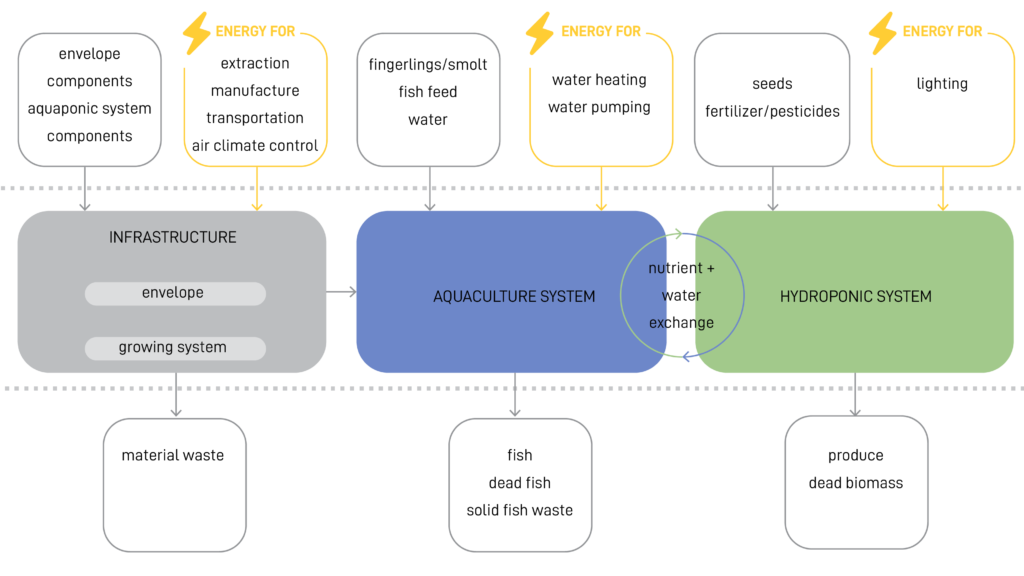June 14, 2019
Urban Food Systems: Applying Life Cycle Assessment in Built Environments and Aquaponics
Abstract
As the building sector faces global challenges that affect urban supplies of food, water and energy, multifaceted sustainability solutions need to be reexamined through the lens of built environments. Aquaponics, a strategy that combines recirculating aquaculture with hydroponics to optimize fish and plant production, has been recognized as one of “ten technologies which could change our lives” by merit of its potential to revolutionize how we feed urban populations. To holistically assess the environmental performance of urban aquaponic farms, impacts generated by aquaponic systems must be combined with impacts generated by host envelopes. This paper outlines the opportunities and challenges of using life cycle assessment (LCA) to evaluate and design urban aquaponic farms. The methodology described here is part of a larger study of urban integration of aquaponics conducted by the interdisciplinary research consortium CITYFOOD. First, the challenges of applying LCA in architecture and agriculture are outlined. Next, the urban aquaponic farm is described as a series of unit process flows. Using the ISO 14040:2006 framework for developing an LCA, subsequent LCA phases are described, focusing on scenario-specific challenges and tools. Particular attention is given to points of interaction between growing systems and host buildings that can be optimized to serve both. Using a hybrid LCA framework that incorporates methods from the building sector as well as the agricultural sector, built environment professionals can become key players in interdisciplinary solutions for the food-water-energy nexus and the design of sustainable urban food systems.

